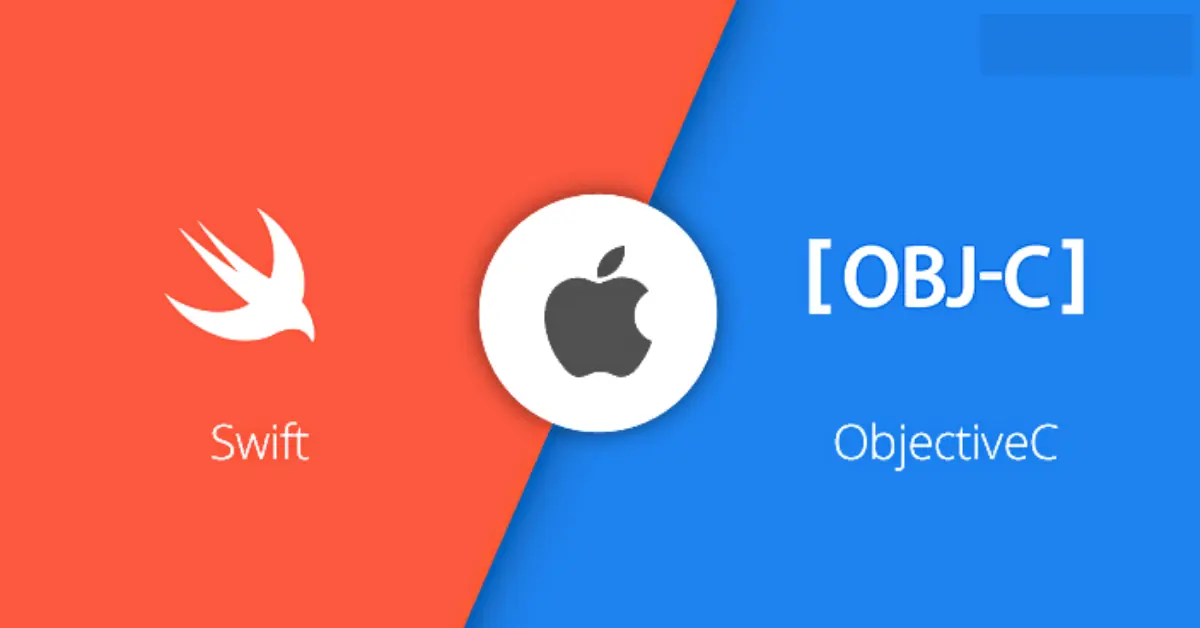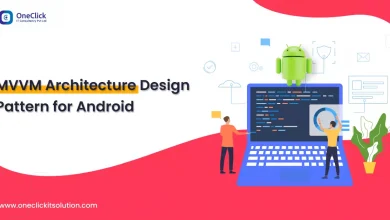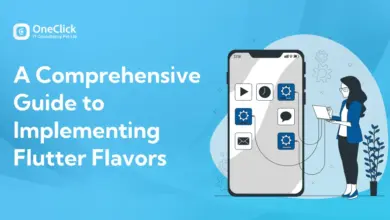Swift vs Objective C – Which is Best For iOS App Development?

Several essential steps are necessary for the success of an iOS mobile application development project. Among them is the choice of the appropriate language.
We will tell you in this article about two languages, those used for native mobile development on iOS, and offer you a Swift vs. Objective-C side-by-side comparison.
Choosing between Objective-C or Swift computer language for the development of an iPhone application is always a difficult decision. Systematically, when you start creating a new project, there are a lot of things to take into account. Also, the choice of a computer language will depend directly on the skills of the developers. You can also hire dedicated iOS resources if you don’t have them on your team.

How was Objective-C Created?
Objective-C was born in the 80s. The language developed by the American Brad Cox was inspired by another object-oriented language of the 70s: Smalltalk.
NeXT, the company created by Steve Jobs after his departure from Apple is the first company to trust Objective-C in its projects.
He bought the language eight years after its creation. It is also NeXT that allowed Steve Jobs to find himself again at the head of Apple.
The American company then developed the OS of its Macintosh (Mac OS X) on the basis of NeXTStep, the operating system of NeXT.
Objective-C is C with many features, including object-oriented programming (OOP). Just like C ++ developed in 1979 by Bjarne Stroustrup.
Brad Cox’s language, therefore, inherits the syntax of its predecessor, C.
Being a strict overlay of the latter, any code is written in this same language can therefore be compiled by the Objective-C compiler.
How was Swift Created?
Predestined to be a serious competitor to Objective-C, Swift was first presented at the Apple WWDC 2014 (Worldwide Developers Conference) opening conference.
Its development began in 2010 after WWDC.
The new version of Clang, Apple’s compiler, had just been presented to developers.
To get his head out of this tiring update, Lattner had embarked on this personal project. Four years later, it led to Swift.
C, C ++, and therefore Objective-C languages did not have memory protection. Developers, therefore, had to take responsibility for adjusting this state of affairs when reading or sending data for writing.
It was therefore not uncommon to see instability in applications or a memory leak if there is an error in the code.
Discussions between Christ Lattner and Bertrand Serlet led to the creation of ARC.
This compiler function checks the correct use of memory in the code, but it is still based on the C language.
In April 2011, Apple finally set up a team for the development of its new iOS App Development language.
Development supervision was then entrusted to Ted Kremenek. Several lines of code and documentation were made during development, later giving birth to Swift.
Objective-C vs. Swift: Which Language to Choose for Syntax?
Objective-C
Objective-C added concepts and keywords to the C language. To avoid conflicts, they must be preceded by the character: “@”.
This is for example the case of @interface, @catch, @try, or many others. Lattner’s language also uses two files.
The first: “.h” is dedicated to headers for the declaration of include, methods, and properties while the second: “.m” brings together the implementation files.
These repetitive tasks of creating these files add extra work and, in many ways, distract native iOS application developers.
Swift
Not being developed on the basis of C, Swift does not inherit conventions from this language.
You will not only not need to put those countless “@” before keywords, but in addition, goodbye the parentheses of conditional expressions in “if”.
With Swift, you no longer need the many semicolons to mark the end of lines of code.
So, you have a simplified syntax and a code that uses industry standards for its writing. Developers who use languages like Python, C ++, or JavaScript will not be at all disoriented.
Are there any Advantages of Objective-C over Swift in 2021?
Objective-C for Large Projects
If you need to develop a low-complexity iPhone application, then you have the choice between Swift and Objective-C.
On the other hand, for ambitious projects, you have all the good reasons to favor the Objective-C computer language.
Indeed, Swift is still a language that presents some instabilities and with each new version, it is practically obligatory to produce a big work of conversion to new uses.
On this subject, no developer would want to see his iPhone application break as soon as a new Swift version is proposed!
Objective-C or Swift: For Which Operating System?
Swift does not work on operating systems below Mac OS 10.9 and IOS 7.
If your iOS app development project must absolutely run on older models, then Objective-C often becomes an obligation.
Swift for Future Projects
In 2020, around 50% of iPhone application development goes through Swift and the other half through Objective-C.
But in the next few years, the trend clearly seems to be for Swift development.
For example, currently, almost all blogs and tutorials are created in Swift.
At this rate, in ten years or so, we will certainly be able to ask ourselves what is the need to learn the Objective-C language.
API Usage
If your iOS application development project involves the use of APIs such as CoreAnimation or CoreFoundation, you will then need to select the Objective-C computer language.
This type of API is written in C so logically Objective-C will adapt better.
Make a Project Coexist in Swift and in Objective-C
Sometimes you won’t have to choose between coding in Swift or in Objective-C. Indeed, it is possible to make the two languages coexist for iOS app development.
Technically, there is a very handy tool called Swifty which allows the conversion of code in Objective-C to Swift.
Also, note that the free version allows you to convert a limited number of lines of code.
For converting an entire iOS app development project, you will need to go for the paid version.
What is Needed for iOS App Development Services?
For a new iPhone application development project, the Swift language is required almost naturally.
On the other hand, with regard to an old project, the use of Objective-C remains very often popular with developers.
Ultimately, there is no one solution better than the other and the choice rests above all on the profile, the know-how, and the experience of the developer.
Swift vs Objective-C Side-by-Side Comparison – A Choice to Make Depending on the Size of Your Project
As part of a project to develop a mobile application for the iPhone, the choice of programming language must be considered.
To decide, it is recommended to take into account the size of your application, its specificities, and its constraints.
Indeed, because Swift is still in full growth, this language is brought to undergo modifications in its functioning.
Be careful therefore when implementing features that are too complex to update.
If Objective-C still seems to be the preferred language, due to certain limits of Swift on the implementation of too complex functionalities, it is nevertheless imperative to consider the evolution and the proportion of the latter in the development universe.

Choose the Computer Language That you Master
If you have a deadline for the iOS App Development project, the wisest and also the most comfortable is to choose the language that you master the most.
Do you have more experience in Swift development? So no doubt, this is the language you need to build your new app.
An alternative is to hire dedicated iOS developers or outsource your project.
By associating with the Best iOS App Development Company in the USA, you can use the language of your choice and develop apps that can compete in the bustling market due to their rich functionality.
Contact our team of experts for a free project demo on Objective C or Swift and to understand the cost of iOS app development.





